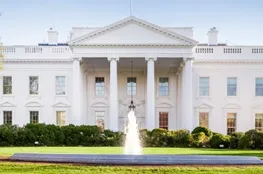Steve Bannons is ‘Very Upset’ With Major Parts of Trump’s ‘Big Beautiful Bill’ Former Trump chief strategist Steve Bannons has voiced strong criticism of President Donald Trump’s recently passed “Big Beautiful Bill,” expressing deep concerns about key provisions within the budget package. Bannons, now a prominent MAGA livestream host and War Room podcast personality, stated he is ‘very upset’ with significant aspects of the legislation, arguing it could have been substantially improved. During his podcast, Bannons emphasized his worries regarding short-term budget deficits, acknowledging that given President Trump’s broader agenda, this bill represents the best achievable outcome at this time. However, he reiterated his significant dissatisfaction, highlighting the need for more robust fiscal responsibility.
The controversial “One Big Beautiful Bill Act” narrowly passed the House of Representatives by a margin of 215 to 214 after an intense overnight session following weeks of protracted negotiations. Notably, just two Republican lawmakers, Representatives Thomas Massie of Kentucky and Warren Davidson of Ohio, defied party leadership and voted against the expansive 1,000+ page bill. This legislation encompasses a range of provisions, including substantial budget and tax cuts, the implementation of stricter work requirements for Medicaid recipients, and an increase in defense and border security spending. Bannons’ specific criticisms centered on the bill’s potential to exacerbate national debt, advocating for tax increases to offset the elevated spending levels. He firmly believes that raising taxes is essential to address the growing deficit, suggesting a shift away from tax cuts for wealthy individuals, stating that this approach is not feasible at this time.
Bannon underscored the importance of reasoned debate and acknowledged that certain elements of the bill may be unpopular within the White House. He asserted that ‘reasonable people can disagree’ regarding the optimal path forward, emphasizing the need for fiscal prudence. The bill’s passage marks a significant milestone, now headed to the Senate for potential revisions and further debate. President Trump, meanwhile, celebrated the bill’s passage on Truth Social, labeling it ‘the most consequential legislation in U.S. history.’ He urged the Senate to act swiftly, demanding immediate action to send the bill to his desk, stating, ‘there is no time to waste.’ The passage of this bill reflects a culmination of political maneuvering and ideological divisions, setting the stage for further debate and potential challenges in the Senate. The debate surrounding the 'One Big Beautiful Bill' highlights the significant policy differences between the Trump administration and a segment of the Republican party, particularly concerning fiscal responsibility and the scope of government spending. Furthermore, the narrow margin of passage underscores the deep divisions within the Republican party regarding the best approach to addressing the nation’s economic challenges. The bill’s ultimate fate will depend on the ability of senators from both parties to find common ground, a task that appears increasingly difficult given the significant policy disagreements at play. The implications of this bill extend beyond the immediate budgetary concerns, potentially shaping the future of social safety nets, national security, and the overall economic landscape of the United States. Continued scrutiny and debate are anticipated as the bill moves through the Senate, with stakeholders weighing the potential benefits and drawbacks of each provision. The passage of this bill represents a pivotal moment in the Trump administration’s legacy, marking a significant attempt to fulfill key campaign promises and solidify his support among his base. However, the challenges ahead remain considerable, as the bill faces opposition from both within and outside the Republican party, suggesting a protracted and potentially contentious legislative process.
























